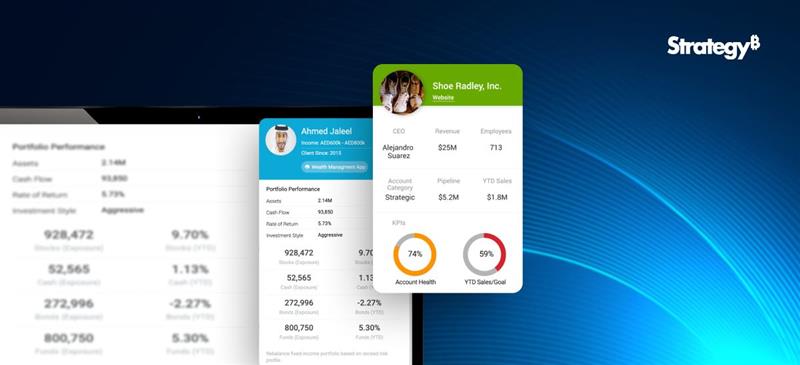We need to do more than what corporate performance management has traditionally enabled to move from strategy to strategic actions while forecasting, monitoring, and managing performance.
What is Corporate Performance Management?
Undoubtedly not a new concept, corporate performance management is often referred to as business or enterprise performance management. Gartner defines corporate performance management or CPM as “an umbrella term that describes the methodologies, metrics, processes and systems used to monitor and manage the business performance of an enterprise”. And that is indeed a broad scope as business performance does touch several areas.
Corporate performance management isn’t a matter of technologies or solutions or an isolated activity or strategy—the holistic perspective is crucial. Getting strategic, financial, analytical, and business knowledge is just one aspect of the equation that will help you make better business decisions.
The four crucial techniques linked to effective performance management are listed below:
- Analysis of the chance and choose the high-impact use cases to benefit from artificial intelligence
- Automation of tasks and establishing a long-term strategy to find quick wins for an all-encompassing change with automation
- Capturing of the value by streamlining jobs to manage organisational transformation and adopt an end-to-end process view.
- Integrating Artificial Intelligence (AI) into an operational model to make a transformational impact, analyse data to make wise decisions, and develop the capacity for ongoing improvement
- The past corporate performance management only partially made it possible to foresee the future. But the present AI advancements help in real-time analysis, predictions, and future-oriented decision-making.
- With the help of artificial intelligence, pattern recognition, statistical forecasting, the analysis of vast amounts of market intelligence, decision-making can be made outside the traditional realm of historical information. When AI tracks KPIs and makes more data-based decisions, performance management can improve significantly.
- Immediate feedback
- Data consolidation for easy management
- Make risk management simple
- Offer primary data access and feedback
- Ease of collaboration
- Boost the standard of talent management
- Effective data analytics for problem-solving
- Developing a collaborative environment
How has AI impacted CPM?
The face of corporate performance management is changing due to artificial intelligence, among other things, in monitoring, reporting, analysis, forecasting, and analytical intelligence (as provided by analytical applications).
Historically speaking, leveraging data has improved over time, opening more opportunities to learn from the past and present and, most importantly, to comprehend and plan using the proper KPIs. This is true within the broader context of strategy and planning in a corporate performance monitoring, reporting, and analysis environment.
To enable analysis, produce measurements, and changes, AI is integrated into the performance management process. Better performance management procedures can be sped up with artificial intelligence, increasing transparency and sustaining employee interest. Furthermore, corporate performance management enables better leverage of all data in the organisation’s ecosystem and helps to achieve its strategic objectives.
Advantages of a CPM Software
Corporations must adopt process automation in the age of business management intelligence. Here are a few advantages of using a CPM system.
Intelligent dashboards built into performance management software offer all the quantifiable metrics a management team could need to make decisions. The benefit, though, is not in the variety. It lies in the capacity to interpret and use data as changes occur in real-time throughout the entire organisation.
The tools have the intelligence to gather, group, and combine data from multiple sources, be it departments, spreadsheets, or even companies.
The incorporation of tools like what-if models is a crucial benefit of CPM. By simulating the best- and worst-case situations, for example, the model equips managers to reduce risks and make wise decisions.
Managers may easily access information through performance management systems, promoting accuracy and quality.
CPM tools are locally integrated and cloud-connected for all users to keep in sync across all departments.
Recruiters and business leaders are now concentrating on employing AI-driven performance management to enhance the caliber of their hiring. It assists them in finding the appropriate talent pool and selecting the best candidates.
AI is a real game-changer in performance management systems and helps leaders and stakeholders make data-driven decisions and solve current challenges.
Finally, businesses succeed when they concentrate on developing a collaborative environment where there is no place for hierarchy, bias, or inconsistent behaviour. AI in performance management systems will enable executives to spend more time on their employees and provide brilliant ideas.
What does Beinex offer?
STRACT by Beinex is an indisputably efficient tool that helps it deliver optimised business performance. It allows businesses to forecast, track, assess, and identify areas for improvement across all operations. Companies can thoroughly and comprehensively analyse all relevant financial and operational metrics across various levels of the business by consolidating data and performance metrics into one centralised database and then measuring this against their strategic goals.
STRACT is a comprehensive solution with features that allow you to create much more accurate and flexible budgets, enhancing your current business and resource planning and forecasting.




